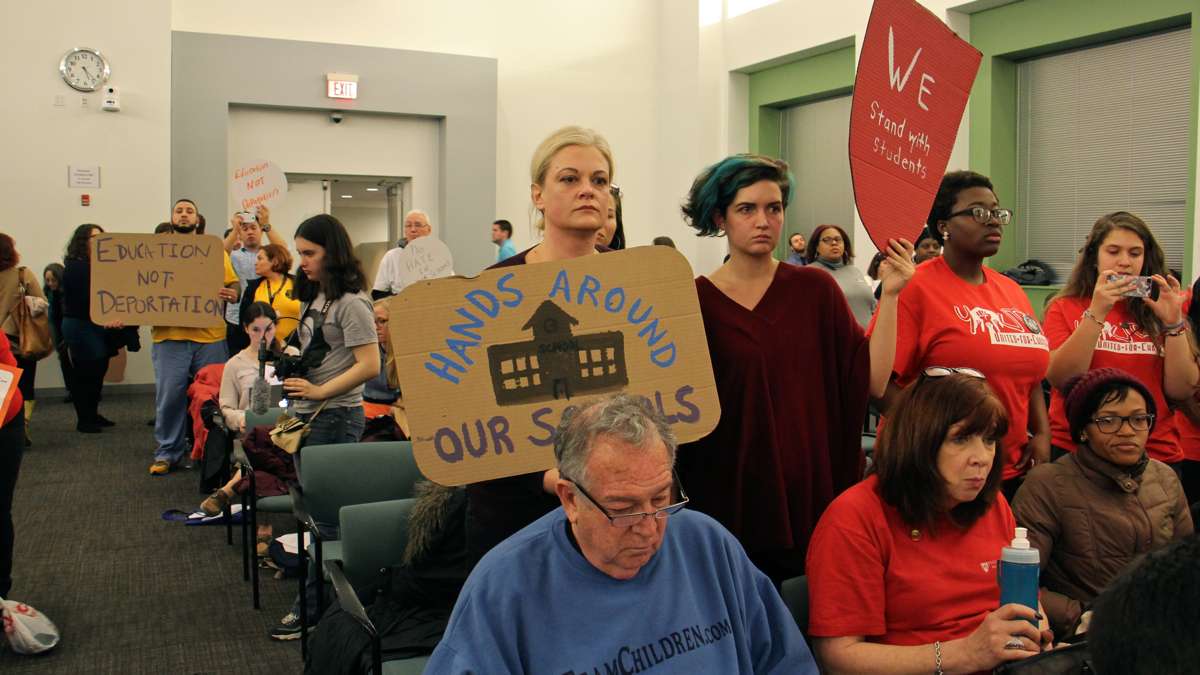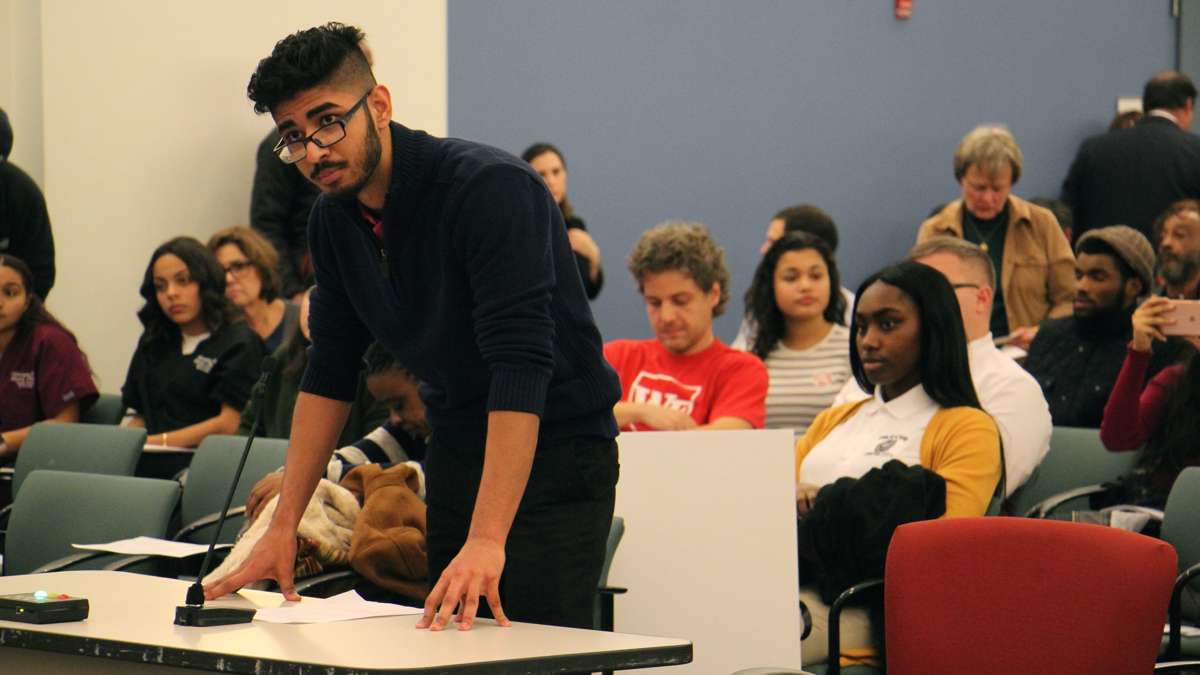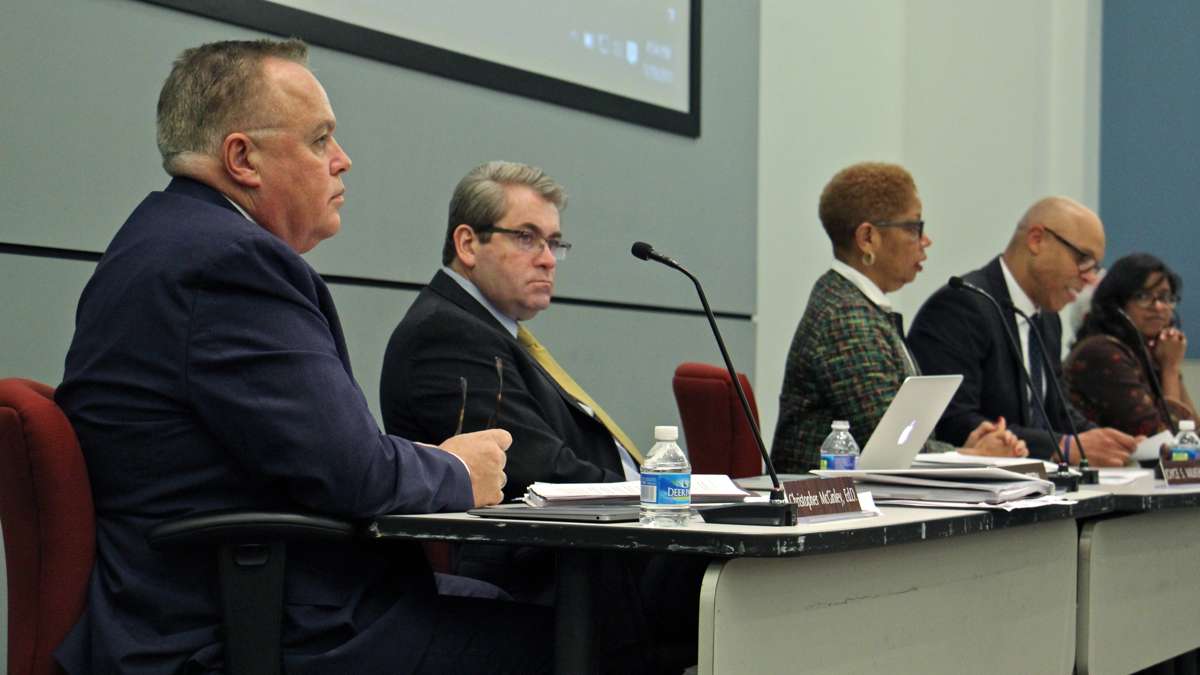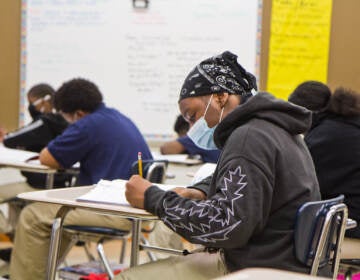Day before Trump takes office, immigration takes center stage at SRC
The evening before Donald Trump would become president immigration took center stage at the January meeting of Philadelphia’s School Reform Commission.
And the timing wasn’t coincidental.
A coalition of left-leaning organizations urged the School District of Philadelphia to reaffirm its policies protecting undocumented students, immigrants, religious minorities, LGBT students, and students of color. The organizations also asked for the district to train teachers, administrators, and school police officers so that they’re aware of policies that shield these groups.
They said such action is necessary because the presidential election “created a climate of fear.” Kevin Itena, a student at Franklin Learning Center, said many immigrant students were mocked after Trump prevailed in the November election and told by other students to “pack their bags.”
“When we arrived here we hoped to live free from fear,” Itena said.
Baktiar Choubhury, a senior at Central High School, said his mosque had recently been defaced by vandals who spray-painted “ISIS is here” on the door.
“I pray that this type of rhetoric and behavior is neither perpetuated nor encouraged by the School District of Philadelphia,” Choubhury said.
To that end, the coalition — which included immigrants-rights groups, the Caucus of Working Educators, and Councilwoman Helen Gym — signed on to a “solidarity campus policy” and asked that the district follow suit.
The document itself contains a number of policies that the district already observes. For instance, the document asks that the district not volunteer information about students to federal immigration officials. It also says those same officials should not be allowed onto district property “to the fullest extent possible under the law.”
The district has long followed those guidelines, said Karyn Lynch, the district’s head of student support services.
The “solidarity campus policy” also requests that the district make sure staff know their legal responsibilities and rights, particularly when it comes to immigration enforcement. Lynch said the district would fulfill that request.
“We are going to do training on immigration, what happens when immigration agents come into buildings and request information,” Lynch said.
She said she isn’t aware of agents entering district schools in the past or of schools sharing information about students, which explains why the district hasn’t gone out of its way to train staff on those policies.
“That’s not training we’ve conducted thus far because that’s never been an issue,” she said. “But if our students and our families feel that it’s an issue that’s absolutely something we’re going to do.”
Some large school districts, including Washington D.C., have reaffirmed their policies on undocumented students since Trump’s election. During his campaign, Trump called for mass deportation of illegal immigrants.
January’s SRC meeting was also the first for long-time educator and administrator Christopher McGinley, who was appointed to the commission about 24 hours earlier by Mayor Jim Kenney. McGinley received a warm welcome from SRC chair Joyce Wilkerson, another recent Kenney appointee.
“We love having you join us and I’m sure we’ll get a lot of benefit out of your expertise,” Wilkerson said.
Estelle Richman, Gov. Tom Wolf’s pick for the SRC, observed the meeting as an audience member. Richman is still awaiting a confirmation hearing before the Pennsylvania legislature.
If Richman can pass that test, she’ll become the third member of the five-person SRC to be appointed by a Democratic politician who received strong union support. That could herald a new era when it comes to charter policy and change the calculus in ongoing contract negotiations with the Philadelphia Federation of Teachers.
It’s too early to tell, however, if the newest version of the SRC will act differently than its predecessors. January’s meeting provided few hints, since there was little on the action agenda that prompted debate.
An early-February meeting to decide the fate of four charter applications could reveal more about how McGinley and Wilkerson view education policy. McGinley said he’ll spend much of the next few weeks getting up to speed on the district budget and those impending charter decisions.
WHYY is your source for fact-based, in-depth journalism and information. As a nonprofit organization, we rely on financial support from readers like you. Please give today.









